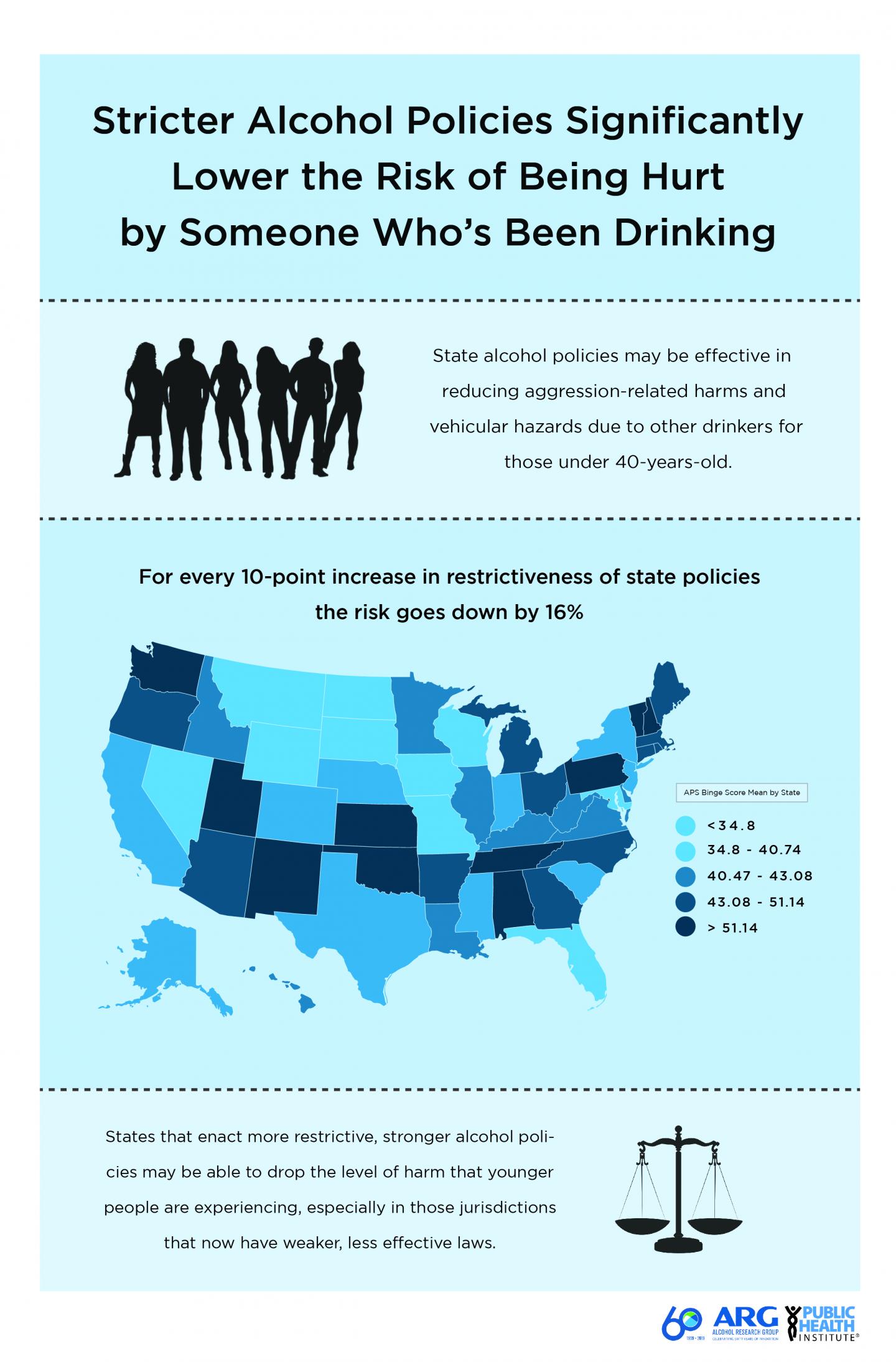
Credit: Thomas Greenfield
New research suggests that state alcohol policies may be effective in reducing aggression-related and driving-related harms due to other drinkers, mainly in younger adults.
The Alcoholism: Clinical and Experimental Research study looked at each U.S. state’s Alcohol Policy Scores (which characterizes the strength of 29 alcohol policy elements that an expert panel deemed effective for reducing binge drinking) and focused on the potential for stronger state alcohol policies to reduce the victimization of people by other heavy drinkers–in other words, to lower the extent of secondhand aggression-related and driving-related harms due to someone else’s drinking.
For each 10 point increase in policy restrictiveness, the odds of experiencing these harms was reduced by approximately 16%. Associations between states’ alcohol policy measures and harms from other drinkers were limited to those under 40 years of age.
“States that enact more restrictive, stronger alcohol policies may be able to drop the level of harm that younger people are experiencing, especially in those jurisdictions that now have weaker, less effective laws,” said lead author Thomas Greenfield, PhD, of the Alcohol Research Group.
###
Media Contact
Penny Smith
[email protected]
Related Journal Article
http://dx.




